Laying focus on sustainable tourism
With tourism underperforming in 2022, industry leaders say Vietnam has a lot of space for the industry to do better, and embracing sustainability is a key part of the equation.
“While the pandemic certainly has had a considerable impact on society as a whole, there has been a positive side that has forced tourism organisations to rethink their business models and operations,” said Jackie Lei Tin Ong, senior programme manager of Tourism and Hospitality Management at RMIT Vietnam University.
“We are seeing that businesses implementing sustainable business models have greater success. There is no question now that sustainable development and operations make good business sense. Sustainability is here to stay,” she said.
Six Senses Ninh Van Bay Resort general manager Benjamin Kreuz noted that through the pandemic, there had been definite changes by all stakeholders involved with the eco-friendly resort.
“Guests are looking for properties or destinations where they can reconnect with themselves and nature,” Kreuz said. “For our hosts or employees, I think they are proud of the emphasis of Six Senses on being sustainable. And it’s great that within the team, people come up with new ideas or help us to achieve our goals,” Kreuz said.
While many resorts and travel agents struggled to rebuild their teams after lockdowns, Kreuz points out that the company’s sustainable goals had helped his staff stay motivated.
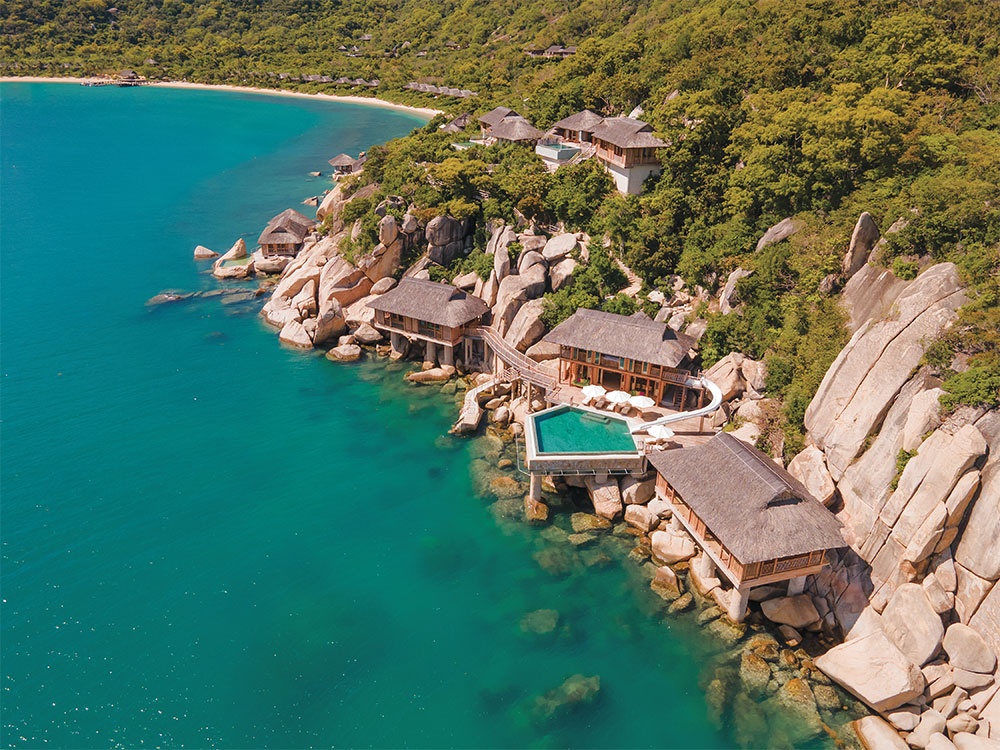 |
| Laying focus on sustainable tourism |
Business planning
While investing in solar farms and organic gardens reduces dependence on fossil fuel energy and pesticides, efforts to conserve the diversity of the local ecosystem have helped the luxury resort develop attractive offers for its guests.
“One of the great initiatives we have is sponsoring a non-governmental organisation called Green Viet on the conservation of the black-shanked douc langur. Listed in Vietnam’s Red Book, this species of primate is only found in southern Vietnam and eastern Cambodia,” Kreuz said.
The Hon Heo mountain area behind the resort is one of the prevalent habitats, where langurs visit the reservoir during the dry season. “We now have over 150 langurs living with us, split into 16 families, and our guests can participate in hikes into the jungle to observe and learn about them,” he added.
To enable such sustainable initiatives, Six Senses management contracts around the world state clearly that 0.5 per cent of revenues will go directly to the sustainability fund of the operating resort.
“To implement a such a programme, we have a director of sustainability who is part of the executive management committee, so sustainability is considered by the most senior leadership position of the resort,” Kreuz added.
According to Chau A Nguyen, who founded Oxalis Adventure in 2011, the concept of social compliance and corporate social responsibility has been noticed for more than a decade. Since then, it has evolved into the application of sustainable business practices.
Vietnamese tourism has moved on from the trends of responsible tourism to sustainable tourism, and now, regenerative tourism is taking place. Before founding Oxalis Adventure, Nguyen advised various compliance monitoring and factory improvement projects through his other company, founded in 2005.
For him, relying on local guides and employees is the answer for regenerative tourism, a type of tourism that not only minimises environmental impact but also nurtures and offers alternatives for sustainable development.
“Three-quarters of our employees in Quang Binh used to be illegal loggers and hunters. Most of our staff are locally hired,” he said.
As well as offering a different means for making a living for the local community around the Phong Nha-Ke Bang area, Nguyen utilises the locals’ wisdom to deliver a once-in-a-lifetime adventure in one of the world’s most spectacular cave systems.
The company take initiatives to preserve natural heritage in the long run. And the results can go beyond business revenue and profit – Oxalis Adventure has also received positive coverage from the BBC, CNN, National Geographic, and many more outlets.
Making it happen
Nearly five years ago, Six Senses reached out to the International Hotel School in Switzerland and commissioned a master study group to find ways to be free of plastic. They did a breakdown of all the plastics used in the group’s hotels worldwide and identified that 80 per cent of the plastic came from 18 largely unwanted plastic items such as cups, straws, and napkin wrappers.
“So we got rid of them, and Six Senses Ninh Van Bay resort will be free from single-use plastic from this year on,” Kreuz said.
“I think one of the greatest challenges we face is that to drive change, people need to be willing to change and generating awareness is the most important thing. So, we cooperated with primary schools to sow the seed of sustainability in young children and reaffirm the message through continued activities,” he added.
“The other thing I don’t go overly excited about is having everything imported. Vietnam has beautiful products, vegetables and coffee from Dalat and other areas in Vietnam, and I wish that the local products of Vietnam are used more in the tourism industry.”
Meanwhile, Oxalis Adventure also has an initiative it deems as the perfect example to show that sustainable and regenerative tourism development can happen if practical steps are taken.
“Many years ago, trekking in the jungle, people would dig holes to make temporary toilets, then use sand or dirt to cover them. We realised that digging holes to make toilets directly risked contaminating underground water, especially in the upstream areas of streams and the landscape around the camping area. So, we researched and created a toilet using a dry composting system, which is environmentally friendly and used at all the campsites on all tours the company runs,” Nguyen said.
Vietnam is also home to vast expanses of green space that can be utilised in its sustainable tourism journey.
Nguyen explained that with 33 national parks, 59 reserves, 13 species conservation areas, nine biosphere reserves, and 54 protection zones, the country has valuable resources to develop regenerative tourism.
“We can offer incredible excursions and programmes for guests to enjoy nature and adventures. American and European tourists usually prefer adventures and natural tourism, but the percentage of this segment to Vietnam is still low compared with ones coming from China, Korea, Southeast Asia and neighbouring countries. So, we need to promote more sustainable Vietnam tourism offers to these markets,” he added.
| Daniel Wood - Managing director of Hospitality, Tasco JSC Tourist experiences come from the first impression upon landing in Vietnam, even for domestic tourists, and we must make airports more organised and reliable. Flights later in the day are often delayed, which is exhausting for tourists and domestic guests alike, so we need to increase overall capacity and match other international destinations. We need a more welcoming and efficient atmosphere in our airports that’s also building value for the Vietnam brand as a country and a destination for tourism. We should look towards examples such as Singapore’s Changi and Bangkok’s Suvarnabhumi, which make the airport a destination in its own right. For Dalat, where we are upgrading and developing the Ana Mandara Villas Dalat Resort & Spa, the city has great potential, but we can activate this by adding more international flights, upgrading airport facilities, and improving tourism infrastructure. There must be more information in English and other languages, such as public signs and directions for tourists, as well as information that tells the story that the city has. Making it more accessible to non-Vietnamese travellers in advance is key so people can get additional information to plan their trips. The last thing that we need to improve is planning and cooperation. Everything seems to be carried out at the last minute, and without enough promotion or cooperation from the tourism industry, we cannot utilise such programmes for efficient tourism development. |
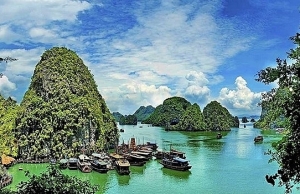 | PM approves tourism development strategy by 2030 Prime Minister Nguyen Xuan Phuc has approved a tourism development strategy by 2030. |
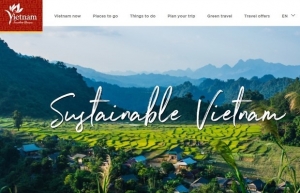 | Vietnam tourism launches sustainable travel showcase online Foreign travellers dreaming of their next vacation in Vietnam can now find the country’s best sustainable tourism options in one online destination. |
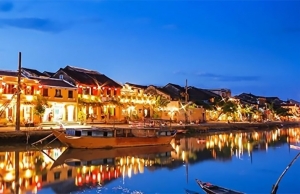 | Vietnam ranks 96th on global sustainable tourism list A Euromonitor International report ranked Vietnam as 96th of 99 countries for sustainable tourism. |
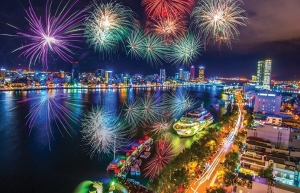 | Responsible and sustainable direction giving wings to Vietnamese tourism development A survey from Economist Impact on more than 4,500 travellers from nations including Australia, Japan, India, Thailand, and Vietnam found that around 72 per cent of participants agreed that the pandemic has changed their way of thinking about sustainable tourism. In which, 7/10 respondents said that sustainable tourism will become more important in the future development of the tourism industry. |
What the stars mean:
★ Poor ★ ★ Promising ★★★ Good ★★★★ Very good ★★★★★ Exceptional
Related Contents
Latest News
More News
- Visa data highlights five key payment and travel trends in Vietnam for 2026 (January 14, 2026 | 10:42)
- New Year tourism receipts top $40m in key cities (January 06, 2026 | 08:36)
- Vietnamese passport climbs on global ranking (December 16, 2025 | 08:00)
- Manila becomes a new check-in destination for Vietnamese youth (December 11, 2025 | 18:07)
- Vietjet launches mega year-end ticket promotion (December 10, 2025 | 11:33)
- Dalat leads Vietnam’s 2025 search trends (December 09, 2025 | 13:44)
- Vietnam welcomes record wave of international visitors (December 09, 2025 | 13:43)
- Vietjet launches daily Manila flights to celebrate year-end festive peak season (December 05, 2025 | 13:47)
- The destinations powering Vietnam’s festive season travel demand (December 04, 2025 | 18:33)
- Vietnam named among the world’s most exciting winter destinations (December 04, 2025 | 15:10)

 Tag:
Tag:


















 Mobile Version
Mobile Version